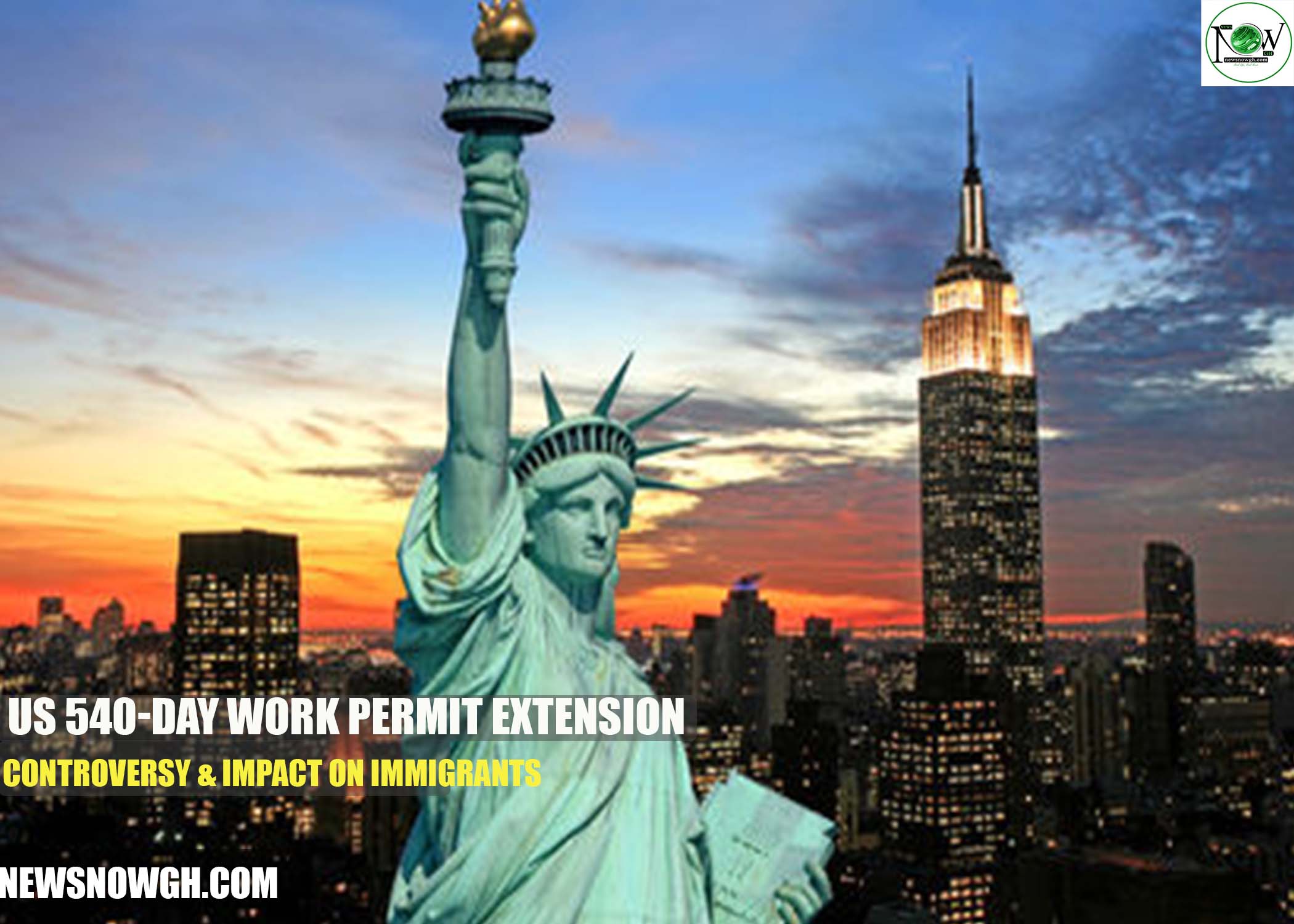US 540-Day Work Permit Extension Controversy & Impact on Immigrants
A looming resolution threatens to reverse a Biden-era policy that extended work permit renewals. This proposed change raises serious concerns among immigrants, green card applicants, and H-1B visa holders.
The Push for Repeal
Lawmakers have introduced a resolution to repeal the rule that increased the automatic renewal period for work permits from 180 days to 540 days. Critics assert that this policy undermines immigration enforcement efforts established in previous administrations.
They argue that broader immigration policies have compromised border security. This resolution seeks to roll back the work permit extension designed to prevent employment gaps for non-citizens waiting for permit renewals.
Understanding the 540-Day Work Permit Extension
The Department of Homeland Security (DHS) finalized a rule in December 2024, enhancing the automatic extension for Employment Authorization Documents (EADs) from 180 days to 540 days. This change, effective January 13, 2025, aimed to ensure that eligible non-citizens do not experience gaps in employment while their renewals are processed.
Who Qualifies for the Extension?
To qualify for the extended work permit period, applicants must meet specific criteria:
- Timely Renewal Application: They must submit Form I-765 before their current EAD expires.
- Same Work Authorization Category: The renewal application must align with the applicant’s existing EAD category or be based on Temporary Protected Status (TPS).
Eligible Work Authorization Categories
The 540-day extension applies to select categories, including:
- Adjustment of Status Applicants (C09)
- E-1, E-2, E-3 Visa Spouses (A17)
- L-2 Visa Spouses (A18)
- H-4 Visa Spouses (C26)
- Temporary Protected Status Holders (A12, C19)
- Refugees and Asylees (A3, A5)
- Non-Citizens with Pending Asylum Applications (C08)
- VAWA Self-Petitioners (A31)
Potential Impact of the Repeal
If lawmakers successfully repeal the 540-day work permit extension, many foreign workers could face significant employment disruptions. This situation is particularly concerning for spouses of H-1B and L-1 visa holders. For example:
- L-2 Visa Holders: They are authorized to work, but delays in processing could lead to complications.
- H-4 Visa Holders: Their work eligibility depends on their H-1B spouse’s green card process. Processing delays might result in job losses and financial difficulties.
Consequences for the H-1B Visa Program
The H-1B visa program plays a critical role in the U.S. tech industry, which is grappling with labor shortages. In 2023, over 250,000 H-1B petitions were filed, with more than 70% granted to Indian nationals. However, demand continues to exceed supply. A rollback of the work permit extension could push skilled workers out of the workforce, exacerbating existing gaps.
Immigration Backlog: A Growing Concern
The U.S. is experiencing a significant backlog of employment-based green card applications, with over 1.8 million cases pending. Repealing the work permit extension could lead to:
- Increased Employment Gaps: Many applicants might lose jobs due to renewal delays.
- Job Security Risks: Expiring work permits could force immigrants out of the workforce.
- Employer Burdens: Companies may struggle with hiring disruptions and increased administrative burdens.
- Family Instability: Spouses reliant on work permits may face financial insecurity.
Looking Ahead
As Republican lawmakers push to reverse the 540-day work permit extension, the potential impact on immigrants and the U.S. economy looms large. With industries already facing labor shortages, this repeal could create new workforce challenges.
The final decision will determine whether thousands of foreign workers can continue their jobs without interruption or face renewed uncertainty about their employment future.
Follow us on NewsNowGh.com to stay updated on the latest information regarding work permits, visas, and visa-sponsored employment.


